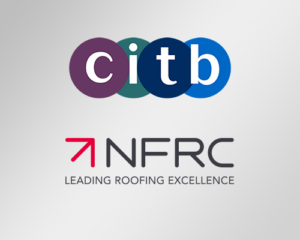Stephen Reynolds, NFRC’s Head of Membership, explains how to draw up a guarantee that protects the customer but also yourself.

A guarantee is a promise to your customer that what they receive is of a good standard and that you will stand by that promise by correcting defects. It can therefore give your customer the confidence to buy your services, which is good for business. However, a poorly-worded guarantee can also add significant risk if at some point the customer call upon it.
Here are my top tips creating a guarantee that protects you and the customer.
Pay attention to the terms and conditions
Don’t just issue a guarantee that states “all works are guaranteed” because it doesn’t define or give any terms and conditions and so places both you and the customer at risk. This of course applies to a guarantee on materials from a supplier. Don’t automatically accept it simply because the word “guarantee” is used. Read the small print.
A guarantee is not a fall-back
A guarantee cannot be used as a fall-back if the installation is incorrect from the start. Even if a guarantee period has lapsed, the contractor could still be liable for defects ff the roof was not fit-for-purpose at the point of installation.
Understand consumer law
For those of you that carry out domestic projects, it worth understanding consumer law as it can work against you whatever your guarantee. For example, a 14-day cooling off contract period from the time the contract applies in consumer law, which means that should work start during this period and the building owner decided to stop using your services, the contract is void, and you will not be entitled to receive payment for materials and labour.
Writing your guarantee
Avoid jargon and write in plain English, being very clear about exactly what you are guaranteeing.
Never warrant more to your customer than your supplier/manufacturer warrants to you and always state how long the guarantee is valid for and include any exclusions to the guarantee–in other words what you are not liable to repair. If, for example, the customer has obligations to maintain the installation or provide access to the installer, then include these as conditions to the guarantee.
Points to think about when writing guarantees
- The right of reasonable access to the property in the evet of failure
- Work should not be undertaken by any other contractor prior to claim
- Notification within a stated number of days of a fault being discovered
- Never overstate or enhance the manufacture guarantee periods–refer to their documents
- Always refer to any manufacturers maintenance requirements
- Consider a transferability clause in case the original building owner moves on
- Consider the terms where other work may be undertaken on the newly-installed roof surface–this especially relates to commercial roofing installations
- NFRC can help members in wording guarantees via specific arrangements with our legal partners. Guarantees and your quotations overall should be endorsed by current, fully legal terms and conditions. Again, NFRC can assist you with ‘Terms and Conditions’.



